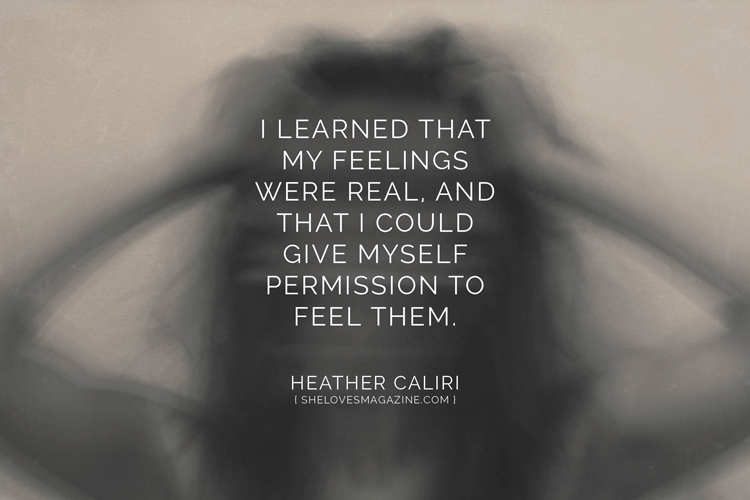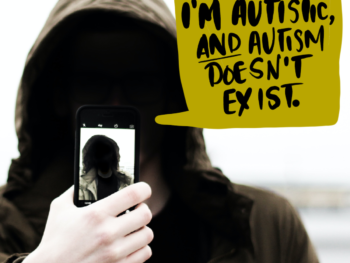
I was alone in my parents’ house when Nine Inch Nails helped change my life.
It was a few months after college graduation. I was listening to music while I packed everything—after just unpacking.
Not long before, my mom had told me I had two weeks to get out.
It was just me, a bass line, my worldly possessions, and empty boxes. The loneliness suited me. I could blast the radio as loud as I wanted.
The song changed, and “Head Like A Hole” came on.
Until that day, the song had repulsed me. I didn’t like the raw scream of the singer’s voice. I didn’t like the menace of the lyrics. I expected songs to make me feel good.
But the jagged edge of the music caught me at the right moment. It said everything I was feeling.
The radio was over by the mirrored closet door, so I moved over to it, cranked the volume up and then stood up. I started jumping, less a dance than an attempt to pound the floor to pieces. I glanced up and saw myself scream, my face contorted, my dirty hair flying, my pajamas still on, and I wondered, with shock, who I’d become.
I didn’t know the lyrics well enough to have any idea what they actually meant, but I chanted them with relish. Head like a hole. Black as your soul. I’d rather die than give you control.
I screamed at my reflection with a kind of triumphant bitterness.
I’d come back from college all squeaky-clean and polished. I graduated with honors, had earned a scholarship to study abroad the year before, and won my university’s writing competition.
When I got home, I knew I was supposed to look for a job. Was supposed to parlay my accomplishments into a career. Was supposed to climb higher and achieve more. I paged through a copy of What Color is Your Parachute, set up informational interviews at Hewlett Packard, tried to write out a resume.
But every day, I felt more bewildered.
Sure that those and other woes were a result of spiritual warfare, I went to Christian therapy for the first time. When my therapist told me she thought I was depressed, I laughed.
“Me?” I said. “I’m one of the most optimistic people I know. I’m, like, happy all the time.”
She tilted her head to one side, not amused. “Heather, someone once described depression as anger turned inward. Who are you angry at?”
All the air went out of the room. Because I knew exactly whom I was angry at, even though, moments before, I’d had no idea.
“My parents,” I whispered.
Why was I angry? My childhood had been filled with trauma during and after my parents’ decision to send first my brother, then my sister to a children’s home. I had never really felt any of my feelings about that—neither grief, or anger, or outrage. No, instead, I’d bottled everything up like homemade kombucha.
More than a decade later, everything spewed out at once.
Looking back, I have compassion for how bewildering this must have been for my mom and dad. I came home from that therapy appointment suddenly enraged, with all the coping mechanisms that had helped me manage severe depression ripped off like a child’s Band-Aid.
And we were supposed to sip tea together at breakfast?
They’d gotten used to me being happy all the time and had no clue how to relate to the person who’d replaced me. Our family had made a specialty of ignoring our emotions. My parents loved me, but they weren’t ready to shed their numbness.
After a few weeks of hell, they asked me to leave.
Now, screaming at my reflection in the mirror, I learned something from the wild look in my eyes.
I learned that screaming did not bring lightning down on my head.
I learned that I was not alone. At the very least, the songwriter—whoever he was—probably would understand my rage. I realized that angry, hateful, dark music existed because it was responding to real pain.
I realized that niceness did not cut the mustard for me anymore.
I learned that my feelings were real, and that I could give myself permission to feel them.
I learned that the colossal knot in my stomach loosened a little when I did.
And I realized, looking in my eyes, that afraid as I was of moving, independence and free-falling into depression and unemployment, I would never go back to papering over my anger. My spine, it turned out, was filled with steel.
I was standing in darkness. Complete darkness. Honestly, after that day, things got a lot worse before they got better.
But Nine Inch Nails sang a song of redemption for me. In its blackness was a wild beauty of truth, and honest self-examination, and finally, finally being able to look myself in the eye.
Originally published at SheLoves Magazine


